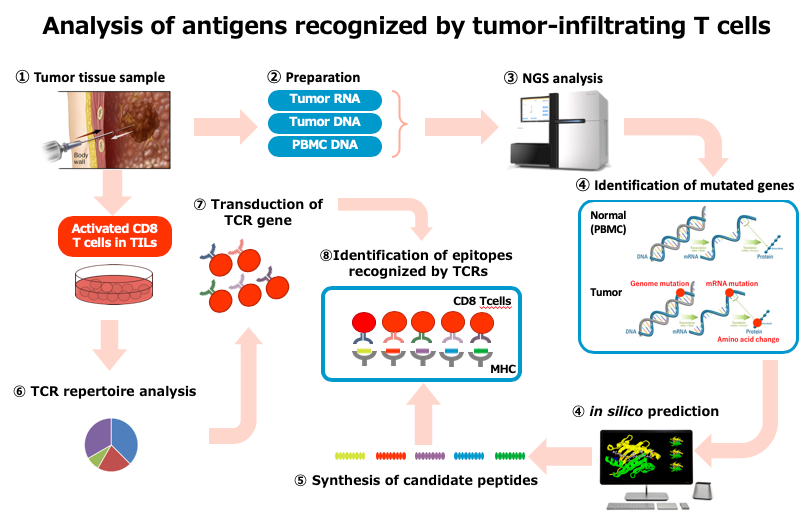Analysis of antigens recognized by tumor-infiltrating T cells
What kind of antigens are being recognized by tumor-infiltrating T cells?
Novel cancer immunotherapies with checkpoint blockade antibodies, such as anti-Programmed Death-1 (PD-1) antibody, have shown unprecedented therapeutic efficacies against various types of cancer, including malignant melanoma, lung cancer, stomach cancer, and others. The mechanism of action for this type of drug is thought to induce “reactivation” of suppressed tumor-reactive T cells, resulted in destruction of tumor. Previous reports have shown that a higher number of gene mutations is correlated with superior therapeutic effects. Although further investigations are needed, these results strongly suggest that T cells, which potently induce tumor shrinkage, may recognize the mutated antigens, so called neo-antigens, encoded by an individual’s tumor genome. From this point of view, it has become increasingly important to determine which type of antigens are actually recognized by host T cells for development of more effective immunotherapies.
What we are doing
Our group is now focusing on tumor-infiltrating T cells (TILs) which are expected to respond to and have cytotoxic effects against tumors. In particular, we have been doing a collaboration study to determine which T cells are recognizing and potentially killing cancer cells through phenotypic analysis. In addition, we have been trying to identify antigens recognized by these tumor-reactive T cells. To this end, we are utilizing a novel method by which enable us to acquire not only TCR alpha/beta sequences from a single T cell but also establish these TCR-transduced T cells almost at the same time. By using this method, we have so far successfully identified several neo-antigens recognized by TILs. We are now investigating gastric and colorectal cancers, breast cancer and others by using this strategy.




 TOP
TOP